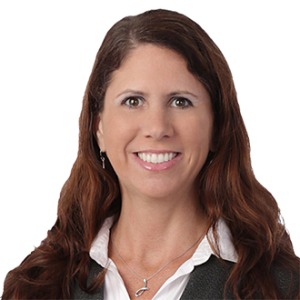While the Ninth Circuit’s recent decision in Bernstein v. Virgin America, Inc., et al., ___ F.3d ____, 2021 U.S. App. LEXIS 5197 (9th Cir. Feb. 23, 2021), gave some wins to the airlines, air carriers employing California-based flight crewmembers must, as a practical matter, now abide by the state’s stringent wage and hour laws – even if the crewmembers in question perform most of their work out of state.
Background
Bernstein is a class action brought by flight attendants for Virgin – a former California-based carrier – who alleged that the carrier violated California’s wage and hour laws. The primary issue was whether California’s wage and hour laws applied. The class members, all of whom were based in California, spent approximately 31.5% of their time working within California’s borders. No class members spent more than 50% of their time in other states nor did they work in any other state more than they worked in California.
Last year, the California Supreme Court held that flight attendants for two major commercial airlines were entitled to California-compliant itemized wage statements and timely payment of wages pursuant to the state’s timing of pay requirements. See Ward v. United Airlines, Inc., 9 Cal. 5th 732 (2020); Oman v. Delta Air Lines, Inc., 9 Cal. 5th 762 (2020). In so ruling, the state high court held that the state’s wage statement and timing of pay laws would apply to flight crew and other interstate transportation workers if the employees either: (1) perform the majority of their work in California; or (2) do not perform the majority of their work in any single state, but perform some work in California and the state serves as their home base. (See July 2, 2020 FH Legal Alert.) The state high court also held that one of the airline’s block time compensation plan for flight attendants did not violate the state’s minimum wage standards.
Guided by the state high court’s ruling from last year, the Ninth Circuit held in both Ward and Oman last month that the same airlines could not escape allegations that they failed to adhere to these laws and remanded the cases to their respective district courts to determine the appropriate relief. In so ruling, the Ninth Circuit rejected arguments from the airlines that adherence to state law would violate the dormant commerce clause, or would be preempted by the Airline Deregulation Act or the Railway Labor Act.
In its case, Virgin likewise argued federal preemption to avoid application of California’s wage and hour laws – particularly of the state’s meal and rest break standards. It similarly sought to reverse the district court’s ruling that its block time compensation plan violated the state’s minimum wage law.
Payment Scheme Based on Block Time Complies with California Laws
Virgin paid its flight attendants based on “(1) block time worked each day of the pairing; (2) block time spent deadheading [traveling between airports to reach an assigned flight]; and (3) up to 3.5 hours of minimum duty if a flight attendant’s block time in one day did not exceed 3.5 hours in total.”
Following the California Supreme Court’s decision in Oman v. Delta Air Lines, 9 Cal. 5th 762 (2020), the Ninth Circuit sided with Virgin that its payment scheme based on block time did not violate California’s minimum wage law. Even if the pay is not specifically attached to each hour of work, the Ninth Circuit held that the payment scheme is compliant with California law as long as there is a guaranteed level of compensation for each duty period and each rotation.
Overtime
Based on the decision of Sullivan v. Oracle, 51 Cal. 4th 1191 (2011), it had been the law of the Golden State that non-residents performing work in California for a California-based employer are protected by California’s overtime law. However, Sullivan left unanswered the question of whether the state’s overtime standards apply to residents performing work outside California for a California-based employer. Following the policy rationale behind the Sullivan case, the Ninth Circuit held that California’s overtime provision also applied to California residents’ out-of-state work – the time flight attendants were not working within California’s borders -- stating that without it, “the state’s important public policy goals of protecting health and safety and preventing the evils associated with overwork” would be thwarted.
Meal and Rest Breaks
In similar fashion, the Ninth Circuit also extended Sullivan’s holding to conclude that California’s meal and rest break laws applied to residents performing work outside California for a California-based employer.
The Ninth Circuit further held that the meal and rest breaks law were not preempted by field, conflict, or express preemption pursuant to the Federal Aviation Act or the Airline Deregulation Act. Like overtime pay, the court noted that meal and rest break requirements are designed to prevent “the evils associated with overwork.”
Virgin argued that meal and rest breaks touch on aviation safety because California prohibits employers from assigning duties to an employee who is on a meal or rest break, and a flight attendant cannot be completely released from duty during flight. However, the Ninth Circuit held that “this connection is far too tenuous to support field preemption for California requirements.”
The Ninth Circuit also noted that conflict preemption does not bar application of the meal and rest break requirements. Conflict preemption only applies if compliance with both federal and state regulations is a physical impossibility. The Ninth Circuit stated that it is “physically possible to comply with federal regulations prohibiting a duty period of longer than fourteen hours” and to comply with California’s meal and rest break requirements.
In noting that “Congress did not intend to preempt generally applicable state transportation, safety, welfare, or business rules that do not otherwise regulate prices, routes, or service,” the Ninth Circuit also rejected Virgin’s argument that the increases in costs associated with complying with California’s meal and rest break requirements is sufficient to show a relation to prices, routes, or services.
Wage Statements and Waiting Time Penalties
California’s wage statement laws apply to workers who perform the majority of their work in California; but if they do not perform the majority of their work in any one state, they will be covered if they are based for work purposes in California. See Ward v. United Airlines, Inc., 9 Cal. 5th 732 (2020).
While the California Supreme Court in Ward made it clear that presentation in California to begin work is one way in which a plaintiff might be based in California, the Ninth Circuit noted that it is not the only way. The Ninth Circuit stated that a flight attendant “whose pairings begin and end in New York, but include flights that depart from California, would presumably still ‘present’ herself mid-pairing to ‘begin work’ in California when she arrived at the airport for that flight.”
Finding that both waiting time penalties (if an employer fails to expeditiously pay all wages due to employees who separate from employment, it is liable for waiting time penalties under California Labor Code) and the wage statement requirements pertain to a tangible object that the employer must give to the employee, the Ninth Circuit held that California’s wage statement and waiting time penalty laws apply to Virgin’s California-based flight attendants.
***
Despite Bernstein, questions remain regarding the application of the state’s laws to non-California-based employers. The ruling also begs the practical question of how and when the state’s laws would apply to non-resident employees of non-California-based employers. Nevertheless, unless the ruling is later reversed by the Supreme Court, given that Bernstein – along with prior rulings from this state – summarily rejected arguments premised on conflicts with federal law, airlines not based in California with California-based flight crewmembers will need to ensure they have a system and policy in place to comply with California’s overtime, meal and rest breaks, wage statement, and final wage laws.
If you have any questions regarding this Alert, please contact the authors, David Cheng, partner in our Los Angeles office at dcheng@fordharrison.com, Nancy Holt, partner in our D.C. office at nholt@fordharrison.com, Andrew McClintock, partner in our Atlanta office at amcclintock@fodharrison.com, Jacki Thompson, partner in our D.C. office at jthompson@fordharrison.com, Sarah Pierce Wimberly, partner in our Atlanta office at swimberly@fordharrison.com, or Min Kim, counsel in our Los Angeles office at mkim@fordharrison.com. Of course, you can also contact the FordHarrison attorney with whom you usually work.
















